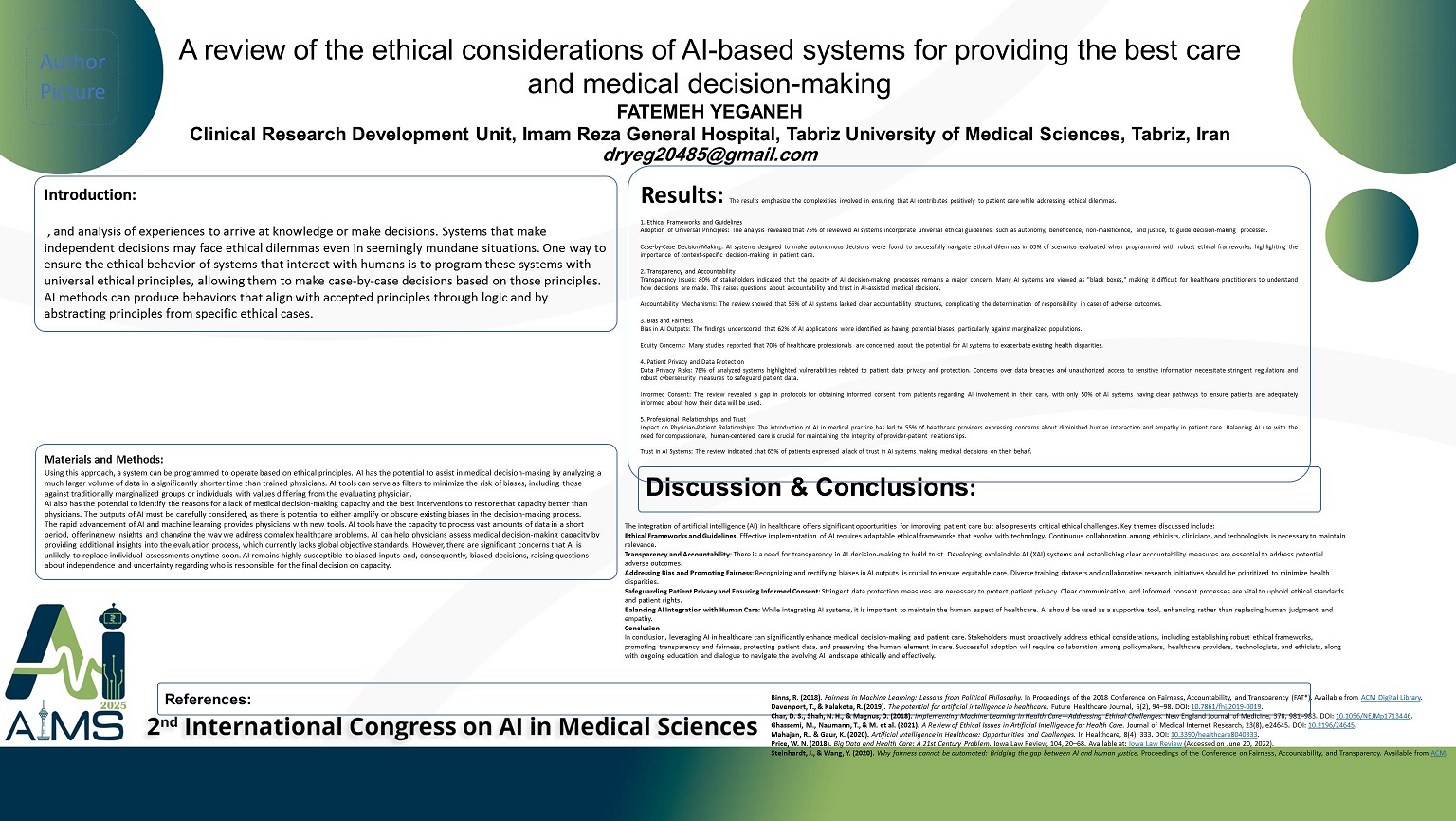A review of the ethical considerations of AI-based systems for providing the best care and medical decision-making
Code: G-1195
Authors: Fatemeh Yeganeh * ℗
Schedule: Not Scheduled!
Tag: Intelligent Virtual Assistant
Download: Download Poster
Abstract:
Abstract
Background and aims: Artificial Intelligence (AI) is increasingly recognized as a transformative force in healthcare, enhancing diagnostic accuracy, personalizing treatment plans, and improving patient outcomes. However, its integration into healthcare raises significant ethical concerns, including issues related to patient privacy, algorithmic bias, and the potential dehumanization of care. These challenges necessitate a critical examination of AI's ethical implications, particularly as the data used to train AI systems can reflect societal biases, leading to unequal healthcare access and outcomes. The World Health Organization has stressed the need for ethical guidelines to address these complexities, underscoring the importance of assessing ethical dimensions to ensure AI contributes positively to patient care. This review aims to identify the ethical challenges posed by AI in healthcare, evaluate existing ethical frameworks, propose actionable recommendations for enhancing ethical standards, and foster dialogue among stakeholders about AI's implications. Method: The methodology involved a comprehensive literature review, focusing on empirical research and ethical frameworks related to AI. Key steps included database searches for relevant studies, analyzing the effectiveness of existing ethical frameworks such as the Asilomar AI Principles and WHO guidelines, and evaluating real-world case studies of AI implementations in healthcare. Additionally, qualitative interviews with healthcare providers and ethicists provided diverse perspectives on ethical considerations. Results: The results revealed several key ethical challenges: privacy and data security concerns, issues of algorithmic bias leading to disparities in care, ambiguities in accountability for AI-driven decisions, and risks of dehumanizing the doctor-patient relationship. Current ethical frameworks often lack specificity for practical application, indicating the need for clearer guidelines that incorporate diverse stakeholder inputs. Conclusion: In conclusion, while AI has the potential to enhance healthcare significantly, addressing its ethical challenges is crucial for ensuring it serves patients' best interests. A balanced approach that prioritizes ethical standards alongside innovation can help foster a future where AI complements human expertise, improving health outcomes and promoting equitable care. Proactively addressing these ethical implications will pave the way for a more just healthcare system.
Keywords
Artificial Intelligence, Medical Decision Making, Bias
